Anesthesiologist Assistant Cover Letter Examples

May 29, 2025
|
12 min read
Get the job with our guide on writing an anesthesiologist assistant cover letter that will have you breathing easy. Learn the basics to wake up the interest of employers and smoothly transition into your dream role.
Rated by 348 people
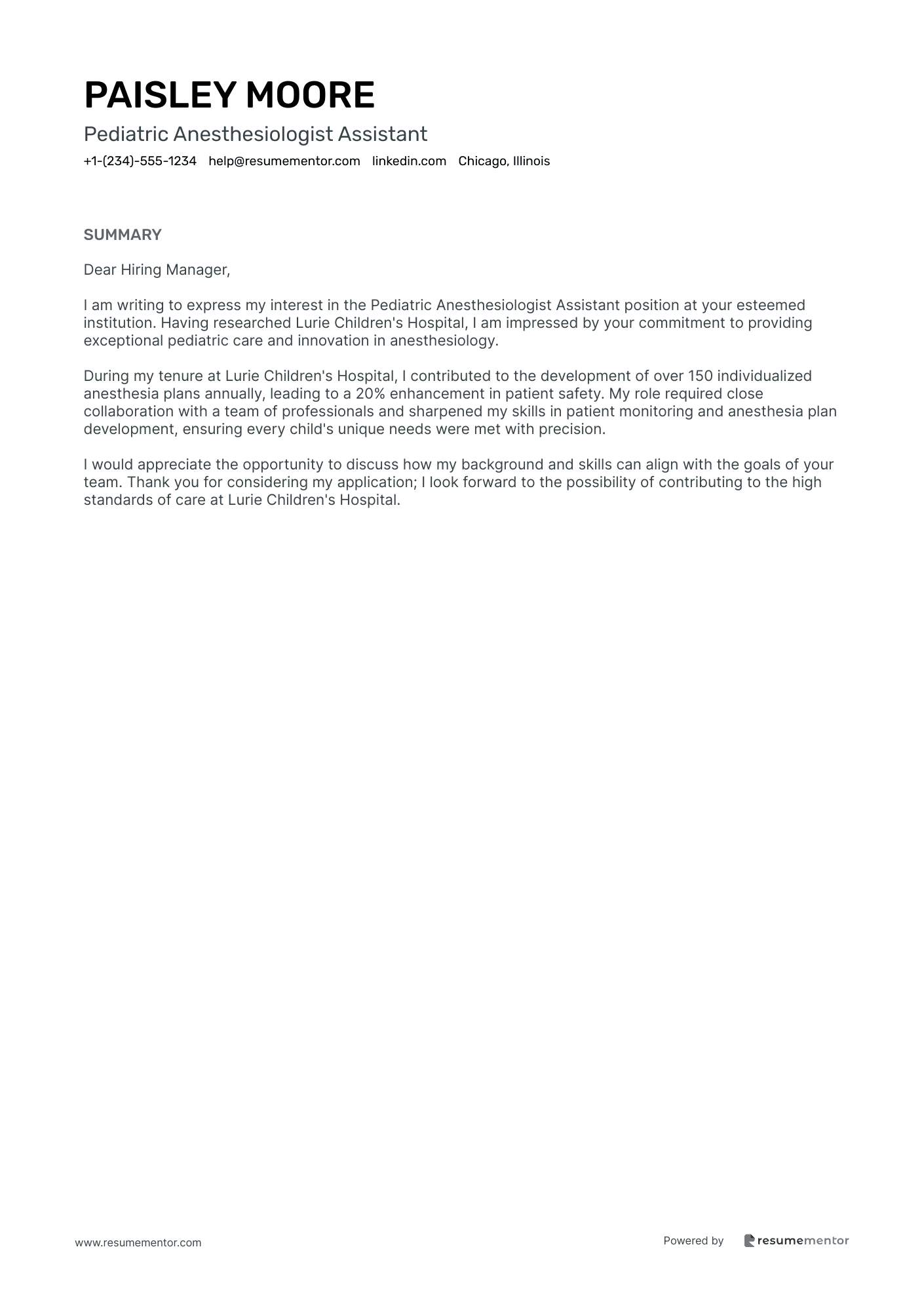
Pediatric Anesthesiologist Assistant
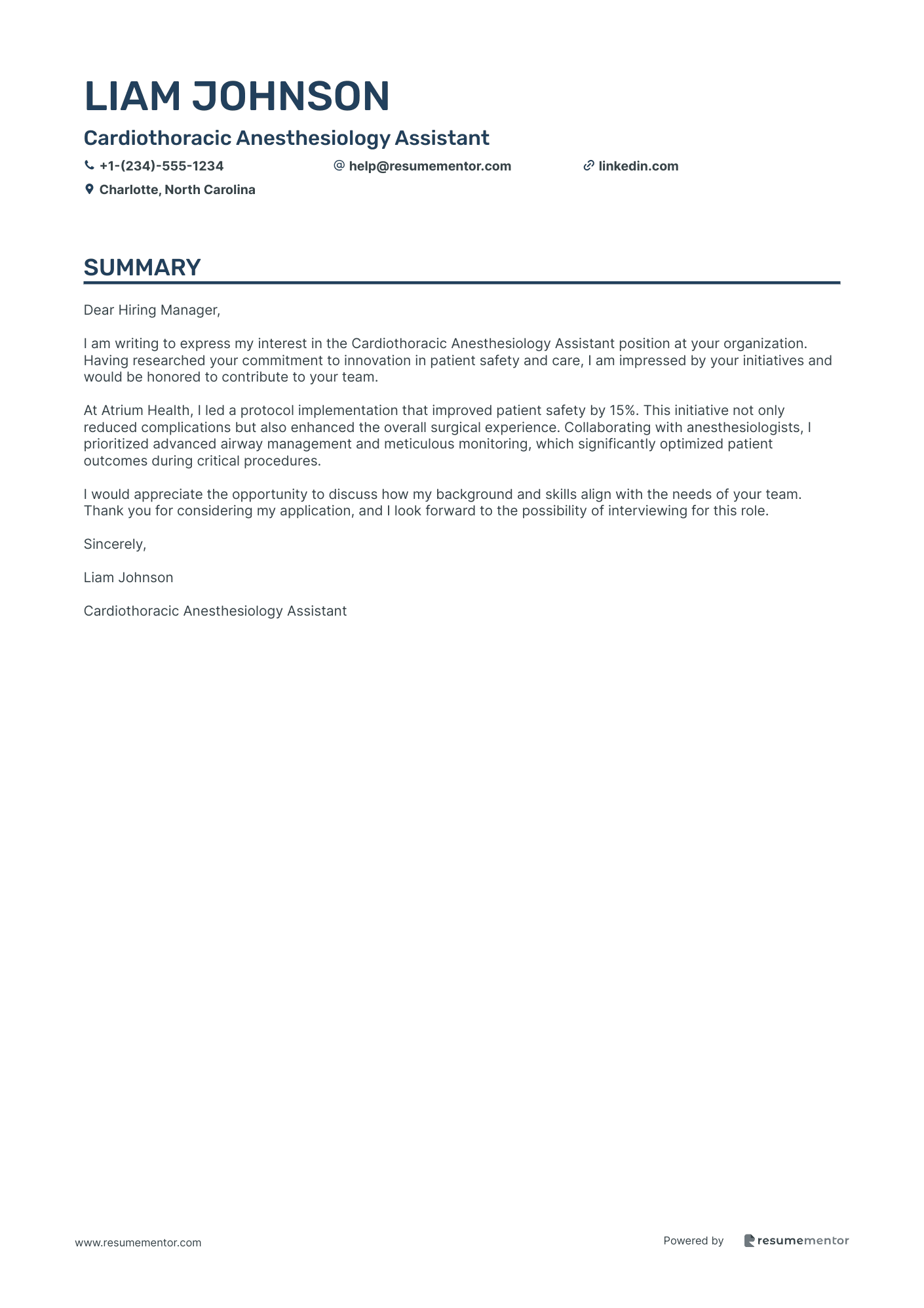
Cardiothoracic Anesthesiology Assistant
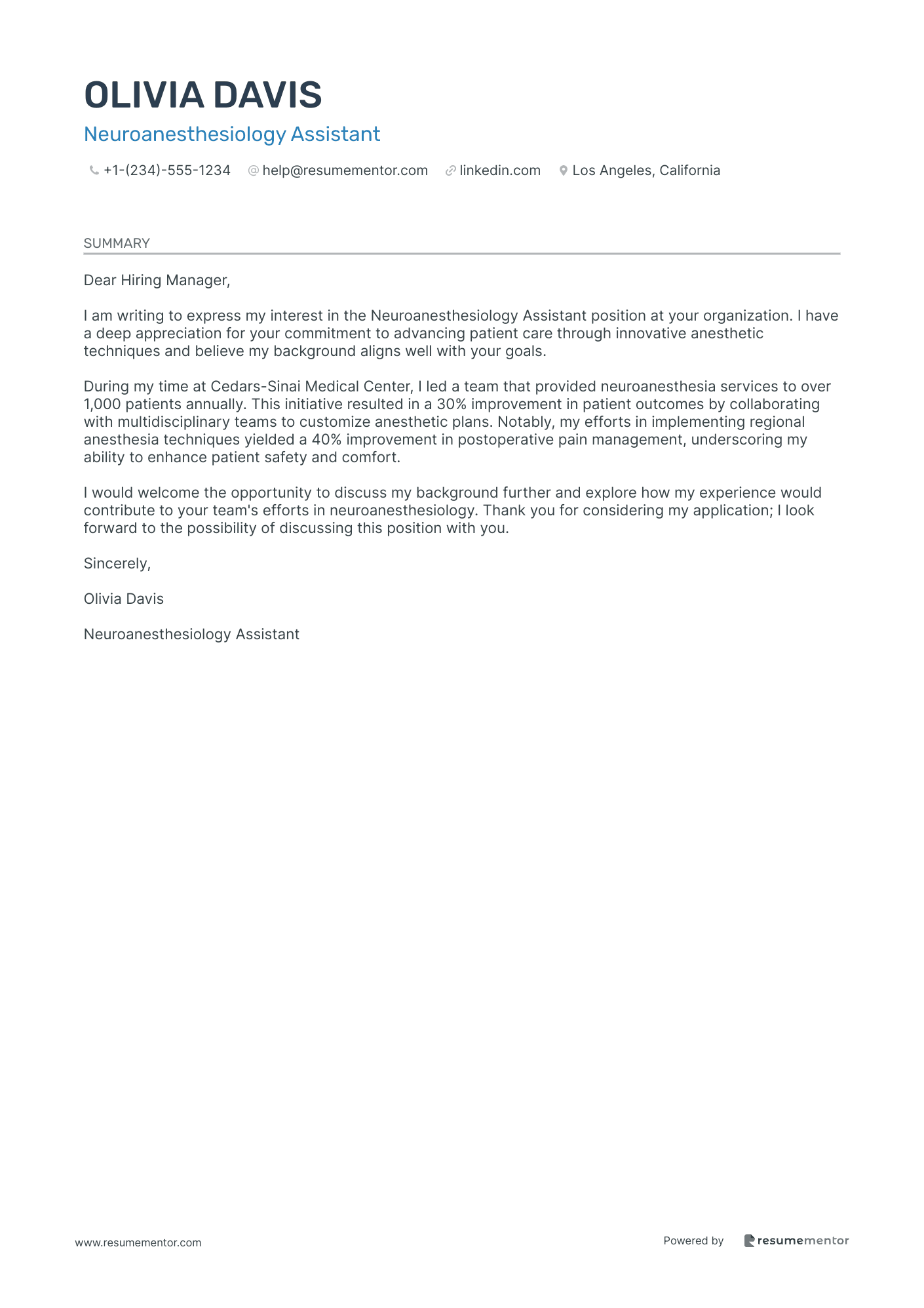
Neuroanesthesiology Assistant
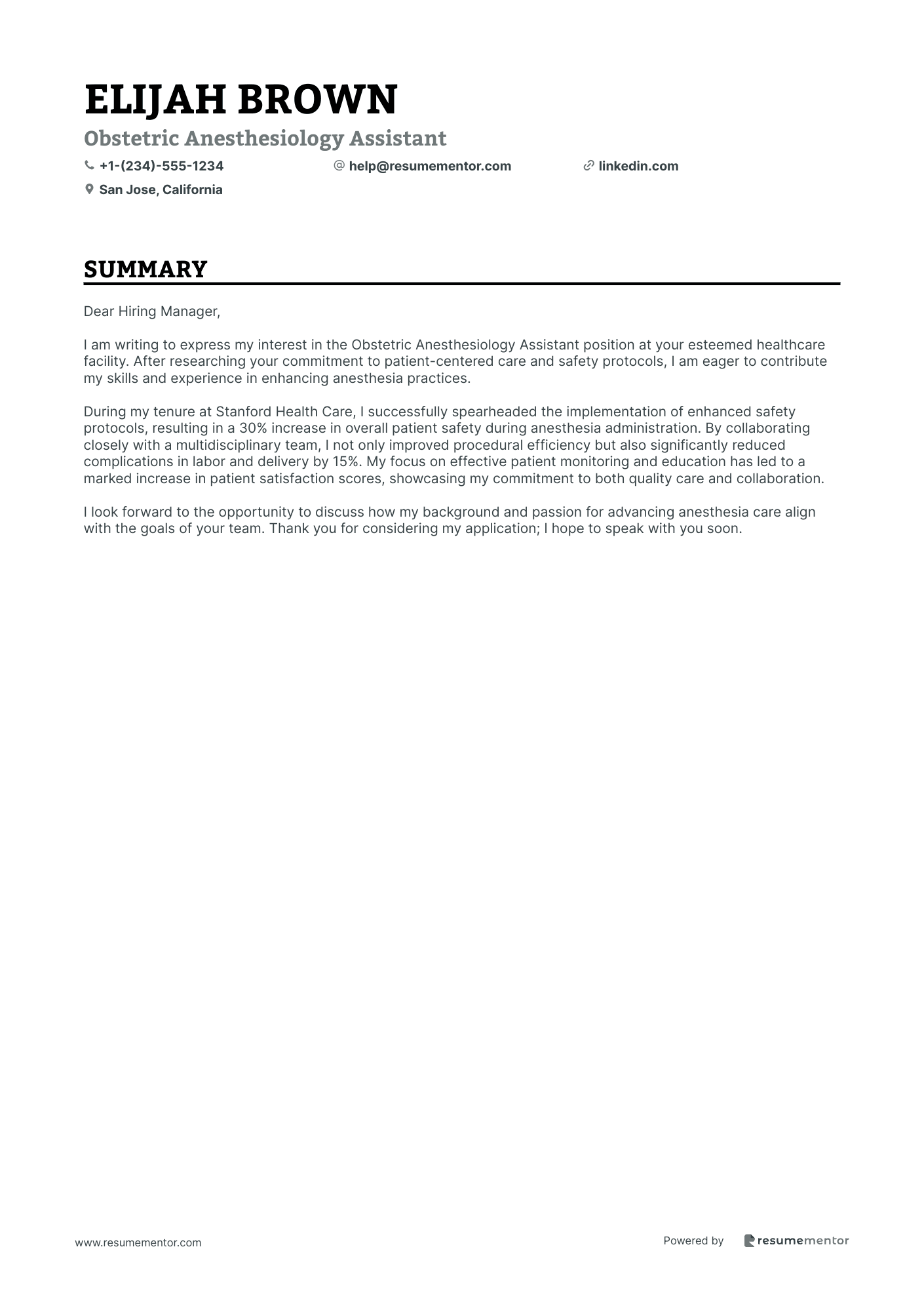
Obstetric Anesthesiology Assistant
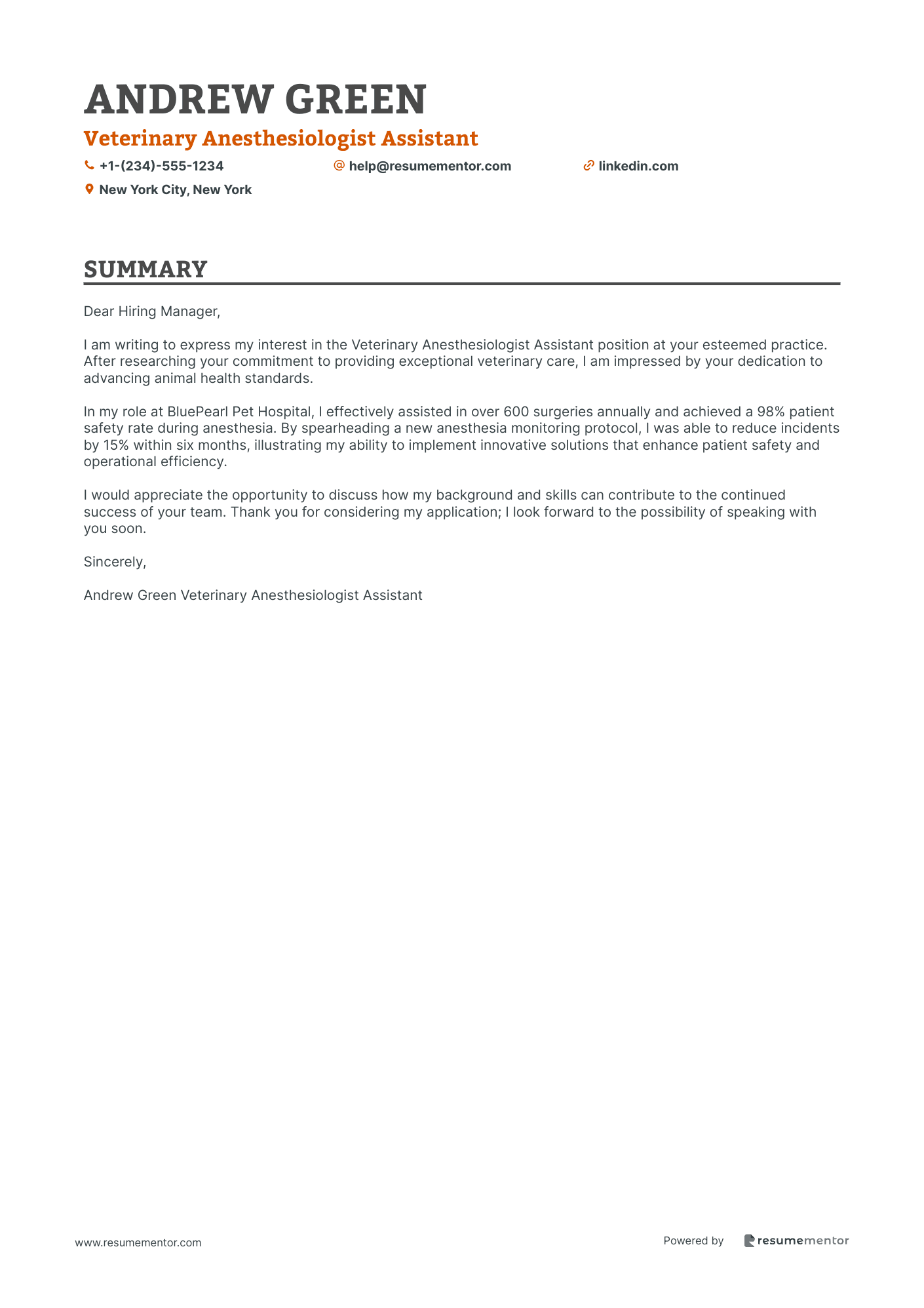
Veterinary Anesthesiologist Assistant
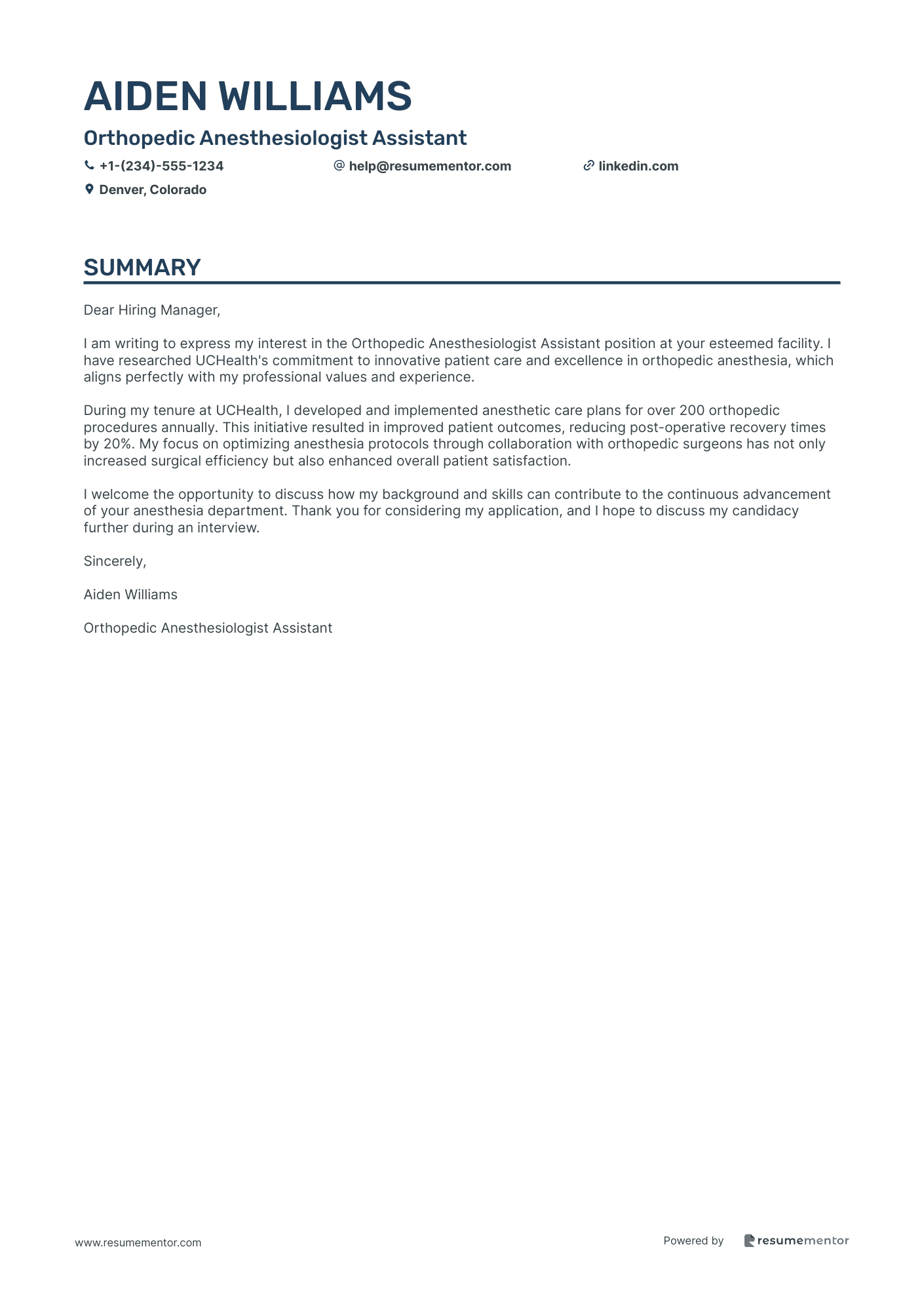
Orthopedic Anesthesiologist Assistant
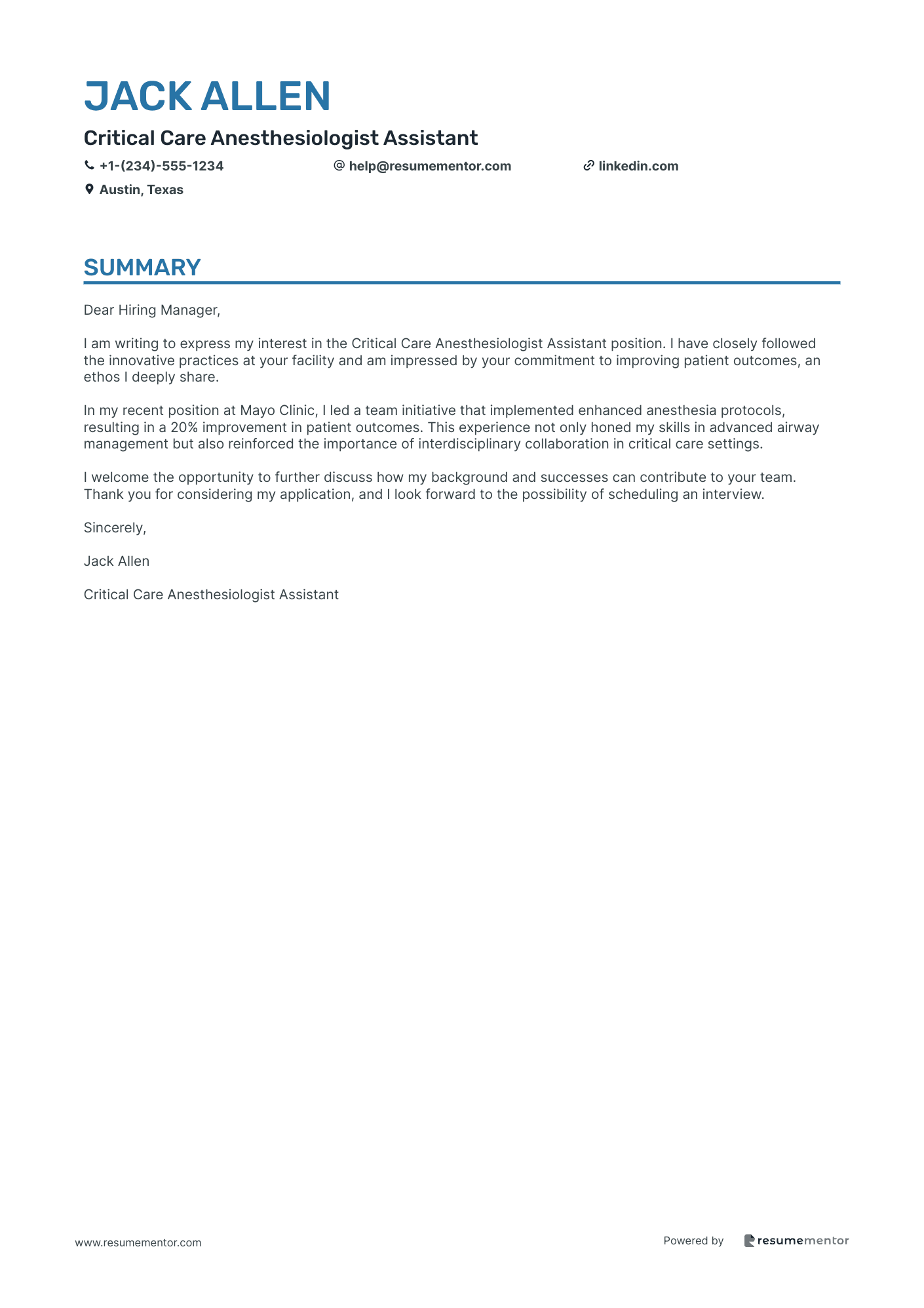
Critical Care Anesthesiologist Assistant
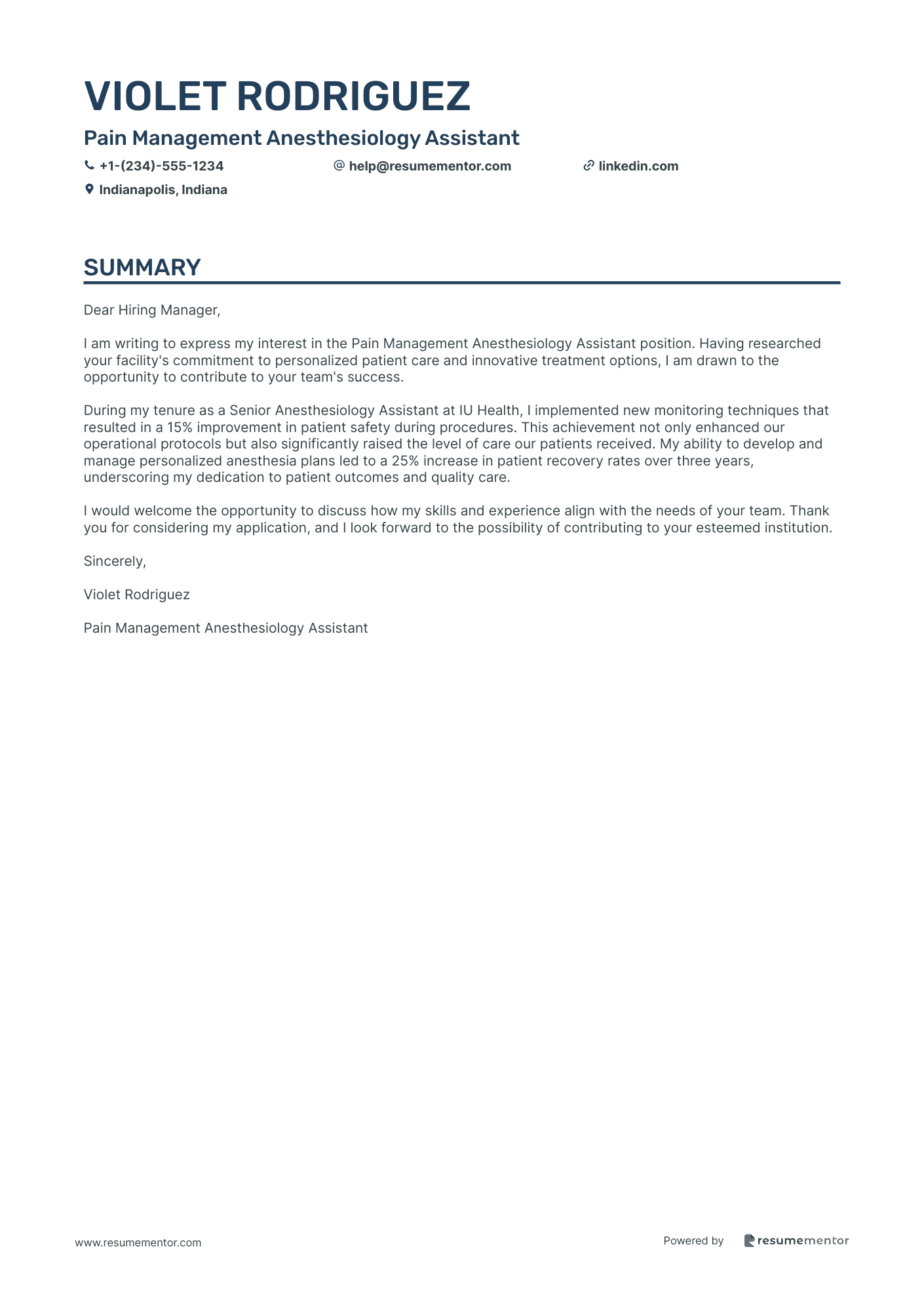
Pain Management Anesthesiology Assistant
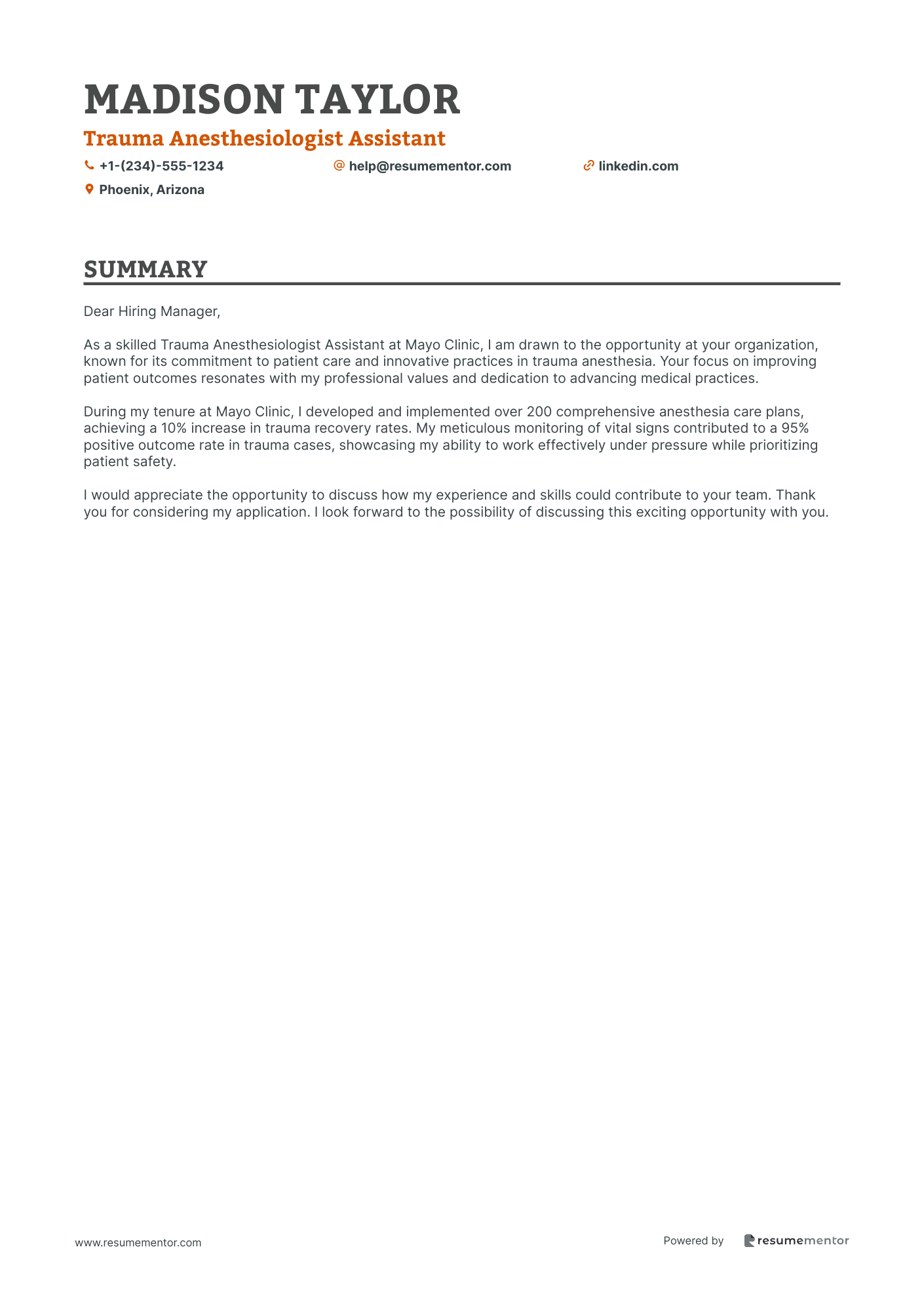
Trauma Anesthesiologist Assistant
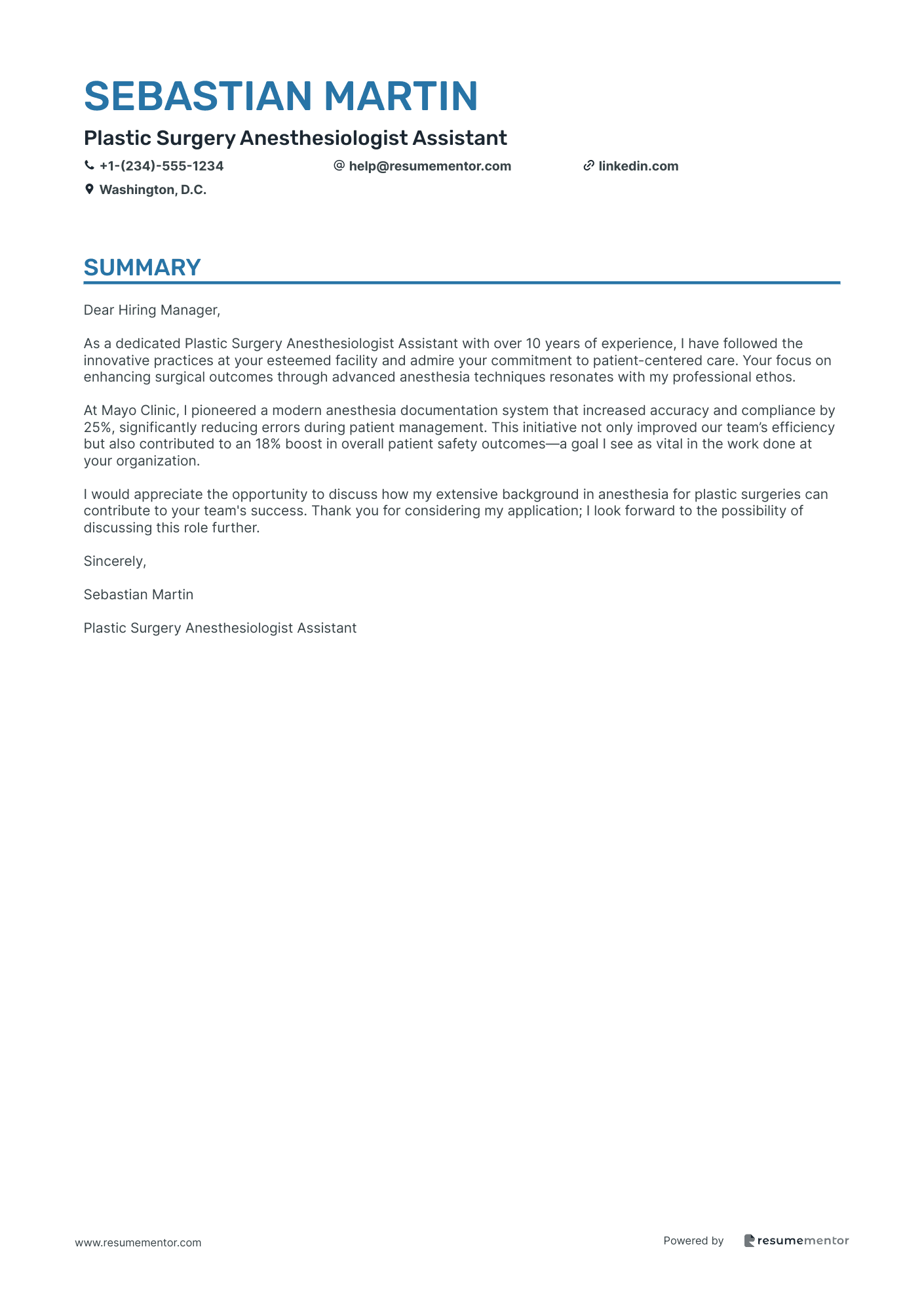
Plastic Surgery Anesthesiologist Assistant

Pediatric Anesthesiologist Assistant cover letter sample
Cardiothoracic Anesthesiology Assistant cover letter sample
Neuroanesthesiology Assistant cover letter sample
Obstetric Anesthesiology Assistant cover letter sample
Veterinary Anesthesiologist Assistant cover letter sample
Orthopedic Anesthesiologist Assistant cover letter sample
Critical Care Anesthesiologist Assistant cover letter sample
Pain Management Anesthesiology Assistant cover letter sample
Trauma Anesthesiologist Assistant cover letter sample
Plastic Surgery Anesthesiologist Assistant cover letter sample
Related Articles

Continue Reading
Check more recommended readings to get the job of your dreams.
Resume
Resources
Tools
© 2026. All rights reserved.
Made with love by people who care.
